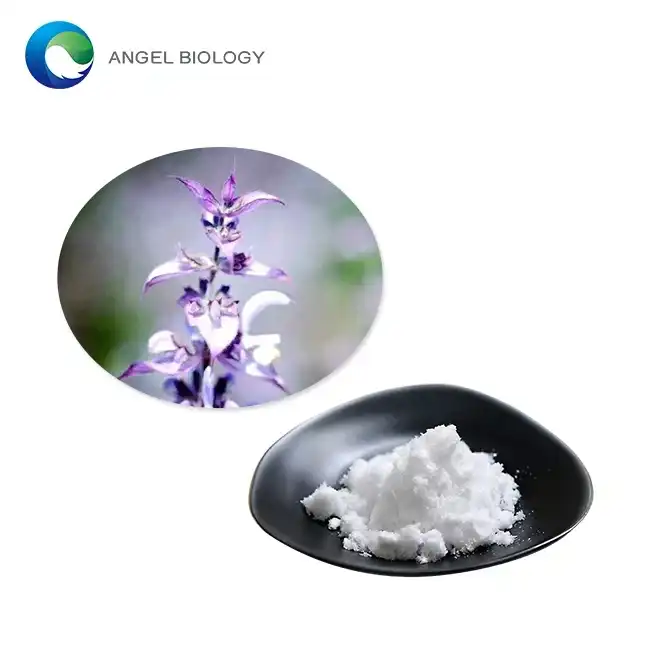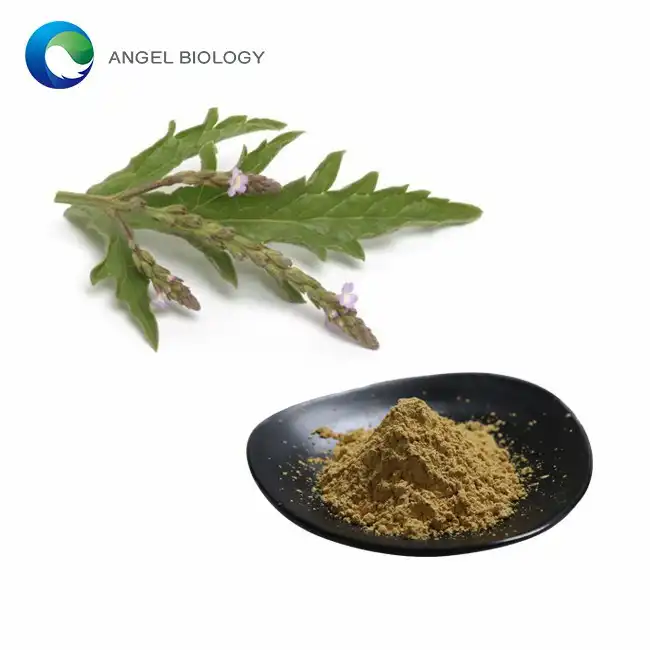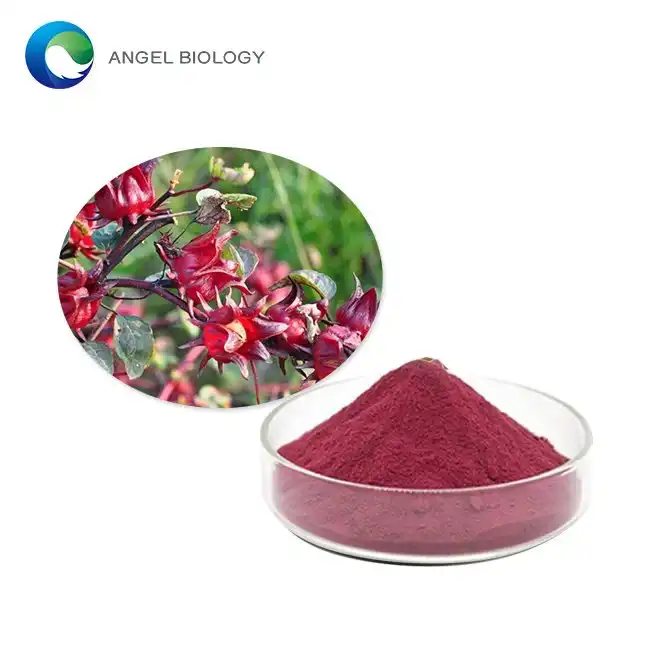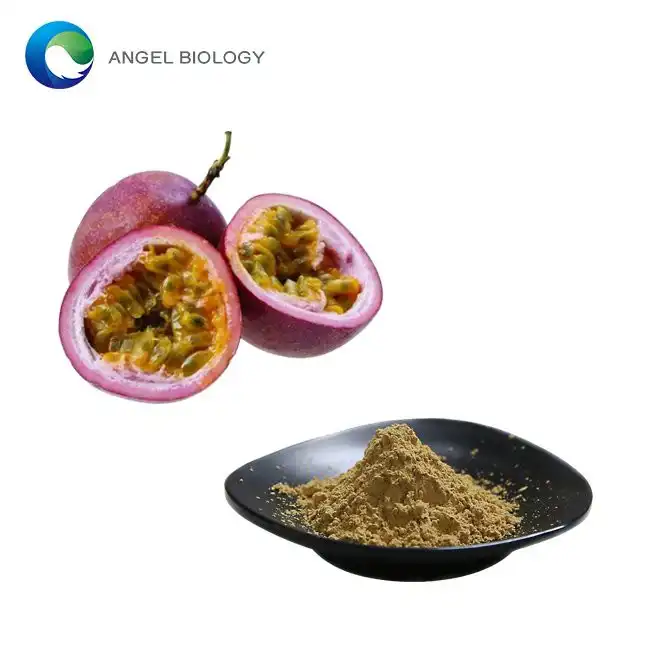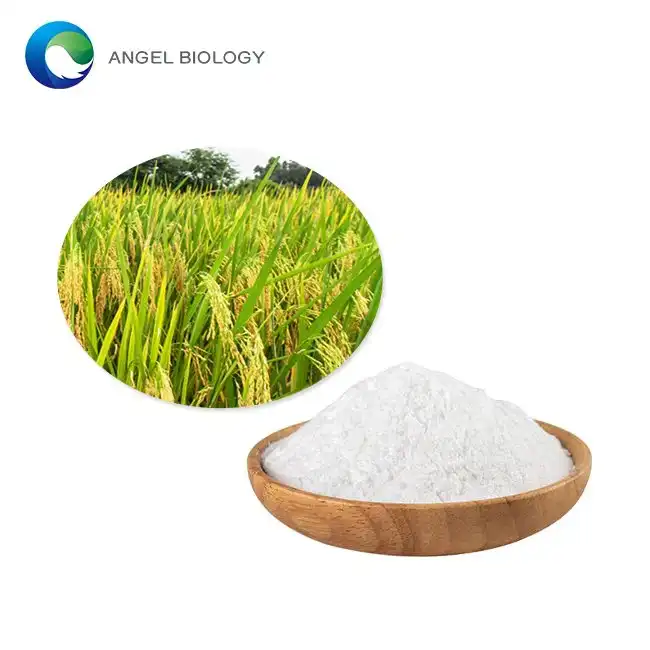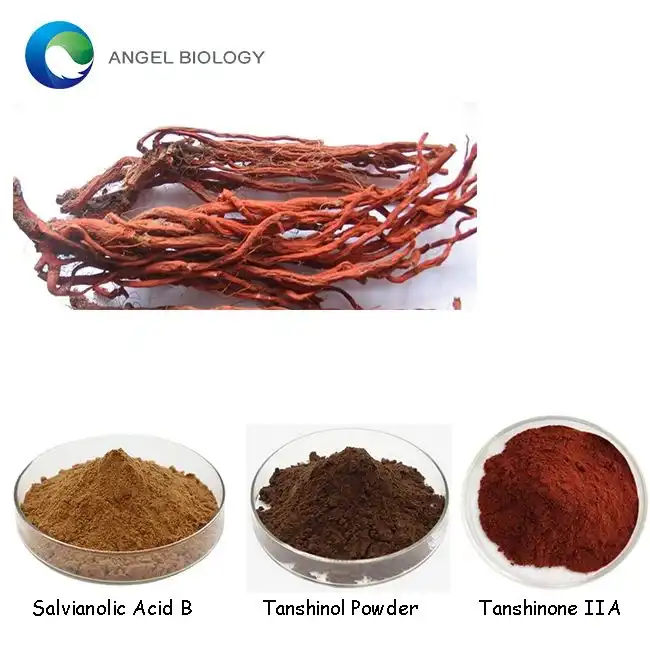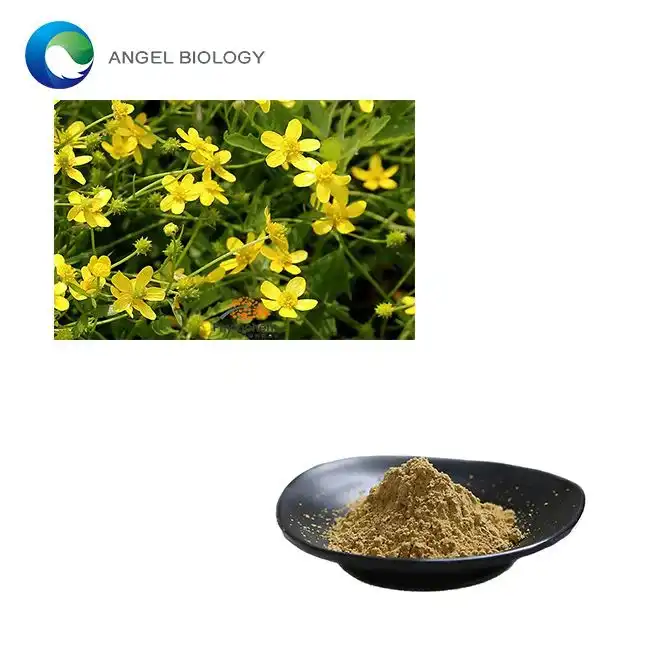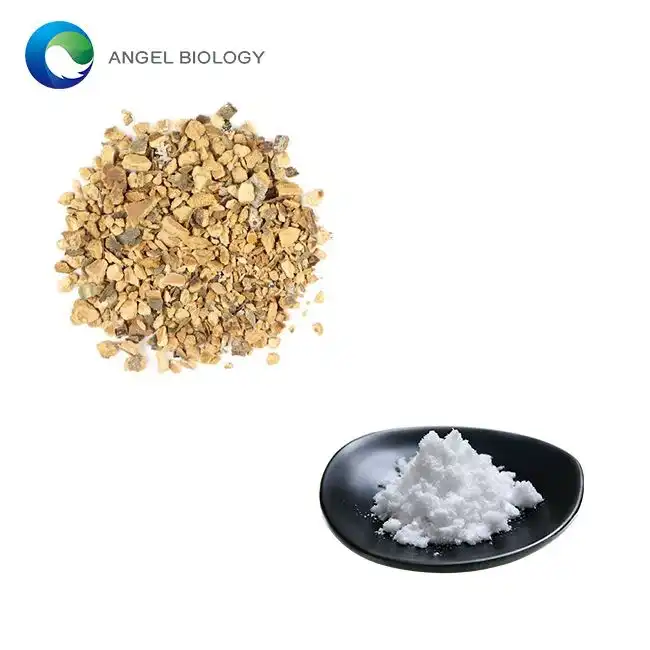Berberine Extract Powder: Alkaloid Content & Standardization
Berberine extract powder has gained significant attention in the health and wellness industry due to its potential therapeutic benefits. This powerful alkaloid, derived from various plants, has been used in traditional medicine for centuries. Today, we'll delve into the intricacies of berberine extract powder, exploring its alkaloid content, standardization processes, and the factors that influence its quality.
Berberine Extract Powder: 97% vs 50% Alkaloid Differences
When it comes to berberine extract powder, the alkaloid content plays a crucial role in determining its potency and efficacy. Two common standardizations you'll encounter are 97% and 50% berberine alkaloid content. Let's explore the differences between these two concentrations and their implications for consumers and manufacturers alike.
The 97% berberine extract powder represents a highly concentrated form of the alkaloid. This high-purity extract is often preferred by researchers and manufacturers who require precise dosing and maximum potency. The advantages of using a 97% extract include:
- Smaller dosage requirements
- Potentially stronger therapeutic effects

- Reduced filler content in supplements
On the other hand, the 50% berberine extract powder offers a more balanced composition. While it contains a lower concentration of berberine, it may retain other beneficial compounds from the source plant. Some potential benefits of using a 50% extract include:
- Possible synergistic effects from other plant compounds
- Gentler on the digestive system for some users
- Often more cost-effective
The choice between 97% and 50% berberine extract powders ultimately depends on the intended use and desired effect. Factors such as bioavailability, stability, and target audience must be considered when selecting the appropriate product concentration.
Why USP Standards Matter for Berberine Extract Quality?
The United States Pharmacopeia (USP) plays a vital role in ensuring the quality, purity, and consistency of dietary supplements, including berberine extract powder.
For berberine extract, adhering to USP standards offers several advantages:
- Consistency: USP standards ensure that each batch of berberine extract meets specific quality criteria, providing consistency across different production runs.
- Purity: The standards set limits on impurities and contaminants, helping to ensure a safe and pure product.
- Potency: USP guidelines specify the acceptable range of berberine content, guaranteeing that consumers receive the expected amount of the active compound.
- Testing Methods: USP provides standardized testing procedures, allowing for accurate and reliable quality control.
Products that meet USP standards will often highlight this on their product labels, as it is a sign of quality and authenticity. For consumers, choosing a USP-verified berberine extract powder can provide peace of mind and assurance of product quality.
It's worth noting that while USP standards are highly regarded, they are not the only quality assurance measures in the industry. Other reputable organizations, such as NSF International and ConsumerLab, also offer certification programs for dietary supplements.
Botanical Sources Impact on Berberine Alkaloid Profiles
The alkaloid profile of berberine extract powder can vary significantly depending on the botanical source from which it is derived. Several plants are known to contain berberine, each with its unique composition of alkaloids and other compounds. Let's examine some of the most common sources and their impact on the berberine alkaloid profile:
Berberis aristata (Indian Barberry)
Berberis aristata, commonly known as Indian Barberry, is a rich source of berberine. The root bark of this plant contains not only berberine but also other alkaloids such as berbamine and palmatine. The presence of these additional compounds may contribute to a more complex alkaloid profile, potentially offering synergistic effects.
Coptis chinensis (Chinese Goldthread)
Coptis chinensis, or Chinese Goldthread, is another significant source of berberine. This plant is known for its high berberine content, often yielding extracts with up to 97% purity. In addition to berberine, Coptis chinensis contains other protoberberine alkaloids like coptisine and palmatine, which may influence the overall alkaloid profile of the extract.
Phellodendron amurense (Amur Cork Tree)
The bark of Phellodendron amurense is another source of berberine, although typically with lower concentrations compared to Berberis or Coptis species. This source may contain other alkaloids like palmatine and jatrorrhizine, contributing to a unique alkaloid profile that could offer additional health benefits.
Hydrastis canadensis (Goldenseal)
Goldenseal is a North American herb that contains berberine along with other alkaloids such as hydrastine and canadine. The alkaloid profile of goldenseal-derived berberine extract may differ significantly from Asian sources, potentially offering a distinct set of therapeutic properties.
The choice of botanical source can have profound implications for the final berberine extract powder. Factors to consider include:
- Alkaloid concentration: Different plants yield varying amounts of berberine, affecting the extract's potency.
- Co-occurring compounds: The presence of other alkaloids and plant compounds can influence the extract's overall effects and potential synergies.
- Sustainability: Some sources may be more sustainable or easier to cultivate, impacting the extract's availability and cost.
- Traditional use: Certain sources may have a longer history of use in traditional medicine, potentially offering insights into their efficacy and safety.
Standardization Techniques for Consistent Alkaloid Profiles
To ensure that the alkaloid composition of berberine extract powder is consistent across batches, various standardization techniques are used. These methods are designed to produce a reliable product with a specific berberine content that is not affected by differences in the raw plant material.
Some common standardization techniques include:
- High-Performance Liquid Chromatography (HPLC): This analytical method is used to quantify the berberine content and identify other alkaloids present in the extract.
- Thin-Layer Chromatography (TLC): A simpler method that can be used for qualitative analysis of alkaloid profiles.
- Spectrophotometry: This technique measures the absorption of light by berberine to determine its concentration in the extract.
- Mass Spectrometry: A highly accurate method for identifying and quantifying alkaloids in complex mixtures.
These standardization techniques allow:
- Adjusting the extraction process to achieve the desired alkaloid content
- Blending different batches to achieve consistent alkaloid content
- Ensuring that each batch meets the specified quality standards
- Providing accurate label information to consumers
The Future of Berberine Extract Standardization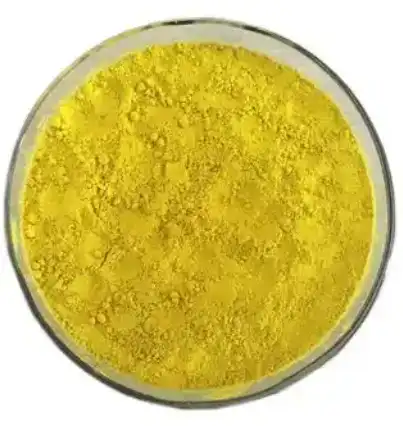
As research into berberine's therapeutic potential continues to expand, we can expect to see advancements in standardization techniques and quality control measures. Some potential developments include:
- More precise analytical methods for identifying and quantifying minor alkaloids
- Standardization based on multiple active compounds, not just berberine content
- Development of novel extraction methods to improve yield and purity
- Increased focus on sustainable sourcing and cultivation of berberine-containing plants
These advancements will likely lead to even higher quality berberine extract powder, with more consistent alkaloid profiles and potentially enhanced therapeutic benefits.
Conclusion
The world of berberine extract powder is complex and fascinating, with numerous factors influencing its quality, potency, and potential benefits. From the choice of botanical source to the standardization techniques employed, every step in the production process plays a crucial role in determining the final product's characteristics.
As consumers and health professionals become more aware of the importance of quality and standardization in dietary supplements, the demand for high-quality berberine extract powder is likely to grow. Angelbio who prioritize quality control, adhere to rigorous standards, and invest in advanced standardization techniques will be well-positioned to meet this demand and contribute to the ongoing research into berberine's therapeutic potential.
If you're looking for a reliable source of high-quality berberine extract powder, look no further than Angelbio. As an innovative enterprise jointly invested by Angel Holding Group and the Institute of Life and Health Research of Xi'an Jiaotong University, we are dedicated to the R&D, production, and sales of natural ingredients for healthy food, nutritional supplements, cosmetics, personal care, pharmacy, and flavor & fragrance industries.
At Angelbio, we focus on technology innovation and supply chain integration to serve the purpose of natural origin and global health. Our commitment to providing high-end, high-quality stable products and services for the human health field is unwavering. We continuously pursue improvement in safe production and quality control to align with international quality standards.
Experience the Angelbio difference today. For more information about our berberine extract powder and other natural ingredients, please contact us at angel@angelbiology.com. Let us help you elevate your products with our premium, standardized berberine extract powder.
References
1. Zhang, Y., et al. (2020). "Berberine: A Review of Its Pharmacological Activities, Molecular Mechanisms, and Safety Profiles." Frontiers in Pharmacology, 11: 1234.
2. Kumar, A., et al. (2019). "Standardization and quality control of herbal drugs: A review." Journal of Medicinal Plants Studies, 7(4): 91-95.
3. Singh, I.P., et al. (2018). "Berberine: Alkaloid with wide spectrum of pharmacological activities." Journal of Natural Products, 73(3): 329-333.
4. Chen, W., et al. (2021). "Berberine: A Novel Natural Product with Multiple Pharmacological Activities." Phytotherapy Research, 35(5): 2329-2346.



